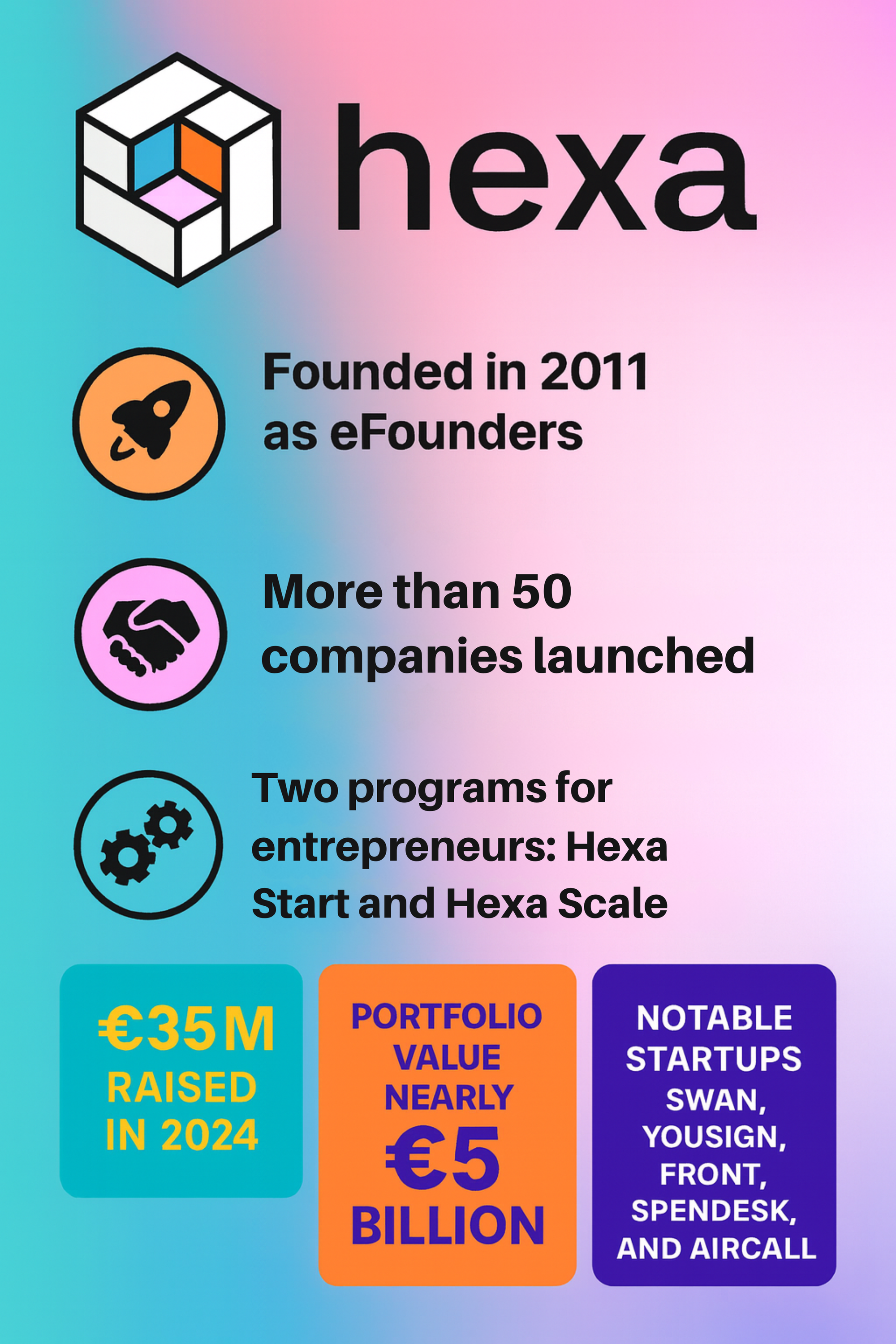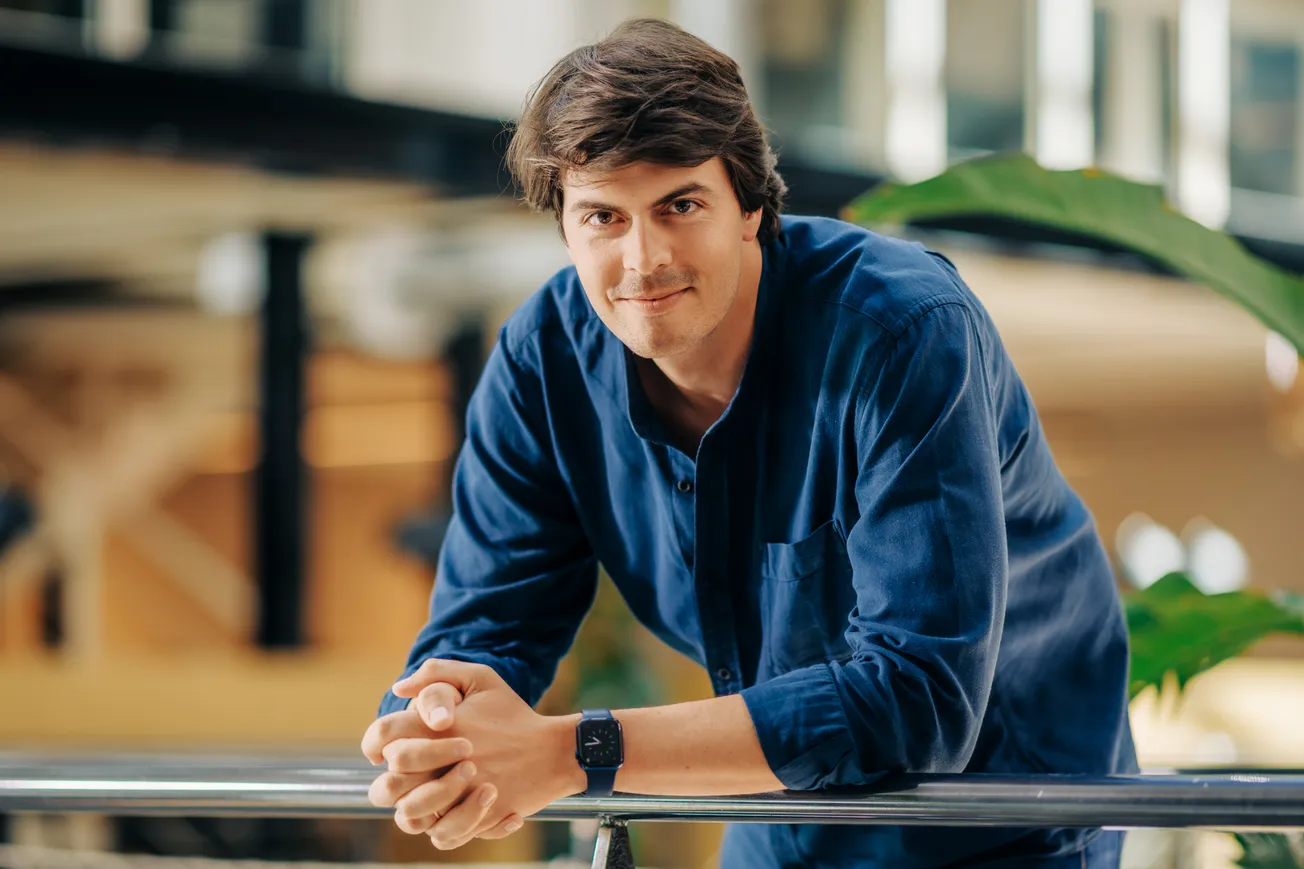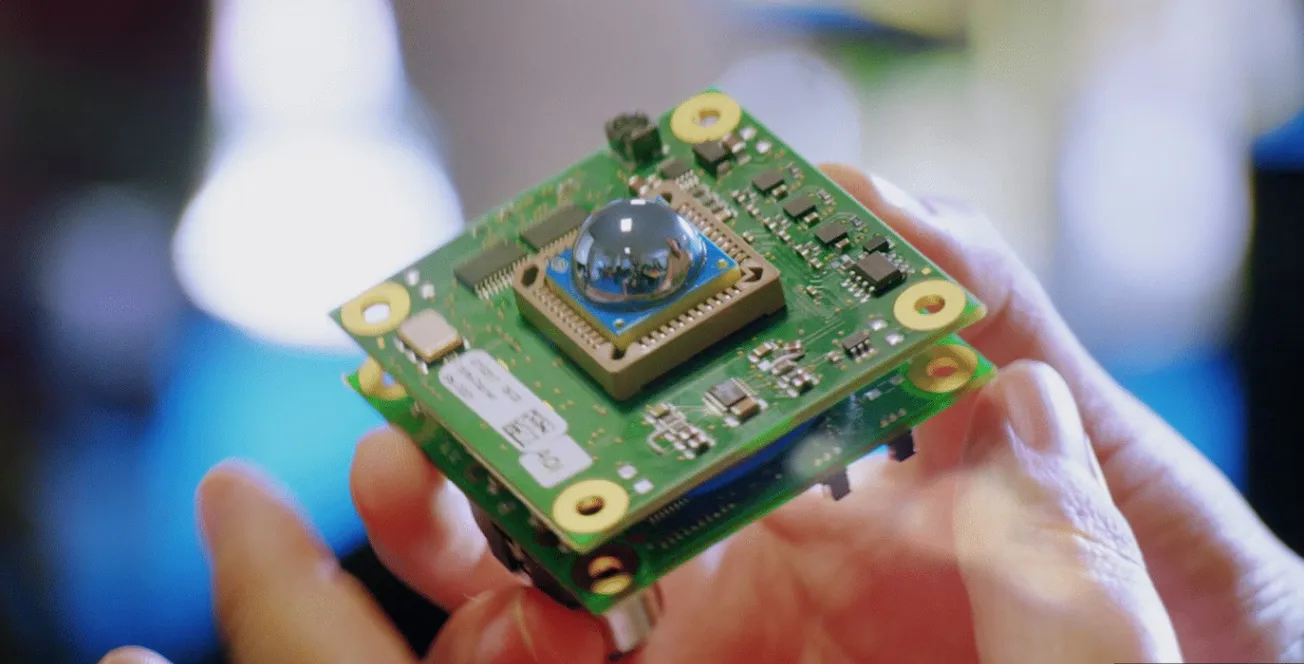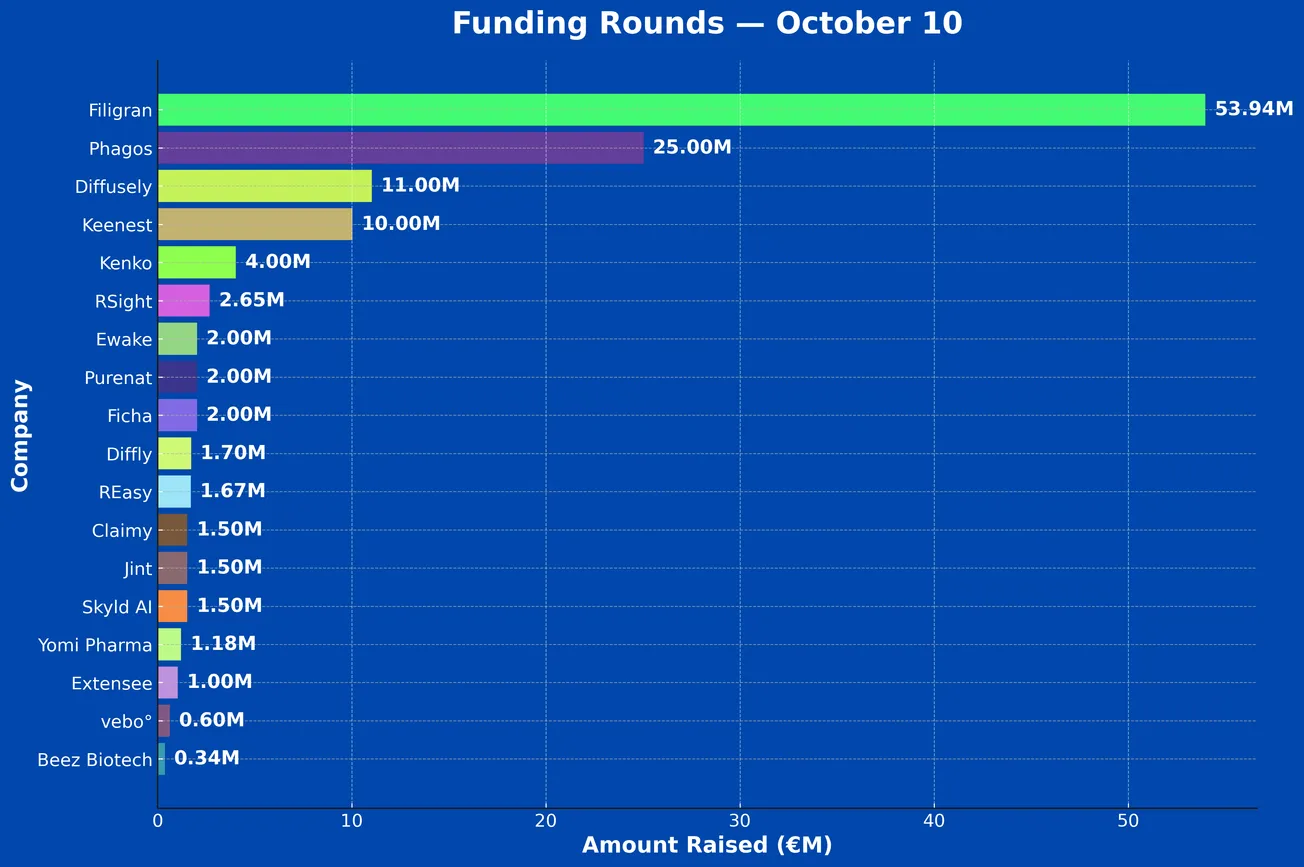For the first time in its 14-year history, the French powerhouse behind unicorns like Aircall and Yousign has appointed a Chief Executive Officer. The timing couldn't be more critical.
Matthieu Gombeaud, the newly minted CEO, isn't just taking the helm of any startup studio. He's steering a ship through what he describes as the most transformative period in tech history, where artificial intelligence is fundamentally reshaping how companies are built, scaled, and operated.
"You cannot create a company the same way today as you were doing three years ago," Gombeaud said.
The Studio Behind the Success Stories
Hexa, originally founded as eFounders in 2011, has quietly become one of Europe's most successful startup factories. Initially, the Hexa team would generate ideas and then find co-founders to build the companies, providing the capital and hands-on support for the first 12 to 18 months.
Besides conjuring ideas and developing them, finding the right mix of founders to lead that startup is perhaps the most crucial part of the studio's work. That involves finding both the right personal chemistry, but also the candidates who share the same passion for the idea.
With more than 50 companies launched and a combined portfolio valuation nearing €5 billion, the studio has created such big names in the B2B software, such as Swan, Yousign, Front, and Spendesk. Hexa's model of building companies from the ground up has proven remarkably effective.
Since 2023, Hexa has been located in La Cristallerie, an 800-square-meter office in a renovated former workshop, featuring massive glass windows that flood the open-plan environment with natural light throughout the day. The space includes flexible work areas, 10 meeting rooms, 12 phone booths, a gym, a nap room, and a professional podcast studio, all designed to foster collaboration and support the entrepreneurial teams at Hexa.

But success breeds new challenges. The founders—Thibaud Elzière, Quentin Nickmans, and Amaury Sepulchre—recognized they needed fresh leadership to navigate what comes next.
"They shared with me that they were looking for a CEO for some very clear reasons," Gombeaud recalled in an interview at Hexa's headquarters. "I think one maybe is just bringing more energy in with someone new. But also with someone to be present in person."
The founders, based in Brussels, weren't physically present daily in Paris, where much of the action happens. More importantly, they realized scaling from their current pace of launching 4-5 companies annually to their ambitious goal of 30-40 by 2030 required different capabilities.
"They are more like entrepreneurs. And so their skills are more like from the zero to one phase, like starting new things, being very close to the entrepreneurs, and maybe not so much scaling and structuring the company for the strategy of a few years down the road," Gombeaud said.

An Optimizer
Gombeaud's background is in operational excellence.
Eight years at Boston Consulting Group, followed by three years at Aircall, where he led partnerships and indirect sales channels. He was responsible for 40% of the company's new sales. But what drew him to Hexa wasn't the allure of building something from scratch.
"I'm an engineer by training, and I like the idea of improving, optimizing, fixing what should be fixed, and making the best, the most optimal out of something existing, rather than creating it from scratch," he said.
Gombeaud's fascination with the startup ecosystem began years earlier when he was leading BCG's AI research team in 2020. While studying artificial intelligence's impact on large corporations, he discovered Y Combinator's model.
"I love this idea of being a catalyst for startup companies," he said. "I think there is an opportunity with a different model. We have a different DNA, but to create something big like YC in terms of impact on the tech scene."
AI: The Great Accelerator and Disruptor
The timing of Gombeaud's appointment coincides with artificial intelligence's most disruptive phase.
"We must completely rethink the way we are building companies," Gombeaud emphasizes.
The changes run deeper than product development or go-to-market strategies. AI is reshaping job descriptions within startup teams. "How do you use AI agents? Is it everyone's job to be a good designer or just to be a good manager of AI agent designers?" Gombeaud said, highlighting the existential questions facing every role in modern startups.
The pace of change has become almost absurd. Gombeaud recounted a recent example that perfectly illustrates this new reality: "We had a project that was struggling, and so the partner got deep into it and realized the CTO was probably not at the level we expected. So we decided to part ways with this person. And there were 300,000 lines of code already."
What happened next would have been unthinkable just months ago. Using GitHub's Copilot and other AI coding tools, the partner stepped in as interim CTO and rebuilt the entire codebase—300,000 lines worth—in just three weeks. "In three weeks, they got it back to the level they were supposed to be, and this was not possible when the company was started," he said.
Building for the AI-Native Future
Hexa's evolution extends beyond its traditional company-building model. The studio is developing a comprehensive platform with three distinct tracks:
- Hexa Start for ground-up company creation
- Hexa Scale for acquiring and accelerating mature startups
- A forthcoming middle track for early-stage companies that started independently but could benefit from Hexa's expertise.
This expansion reflects changing market dynamics where traditional venture capital funding rounds have become harder to secure, but AI tools enable companies to reach profitability faster with less capital. Gombeaud suggests a future where companies might never need traditional Series A, B, or C rounds.
The international dimension remains crucial. All Hexa founders spend time in San Francisco, and the studio is eyeing a permanent footprint there. "For all those companies that we're starting, it's extremely useful to just understand the culture, see what's happening over there, get that feeling of the level of execution," Gombeaud said.
The New Rules of Competition
The traditional startup methodology is evolving into what Gombeaud calls "super agile methodology." Instead of two-week sprints, companies now operate in cycles of hours.
This new reality is forcing Hexa to be more selective than ever. Rather than rushing to hit volume targets, the studio is raising the bar for both partners and founders. In his three months as CEO, Gombeaud has interviewed 12 potential partners but made only one offer.
This acceleration creates both opportunities and existential threats.
"We don't want to rush and hire five guys to get to the objective of 30 companies. We want to take our time to hire only the very best ones," he said. "If you miss an innovation, just for a few weeks, you might be out of your league, because your competitors, some of them won't miss it, and will be able to accelerate to a point where you are not able to catch up."








